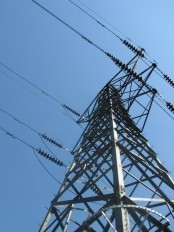|
|
|

Haiti - Electricity : Modernizing Haiti's energy sector
05/03/2011 08:54:50
Haiti is the only country in the Western Hemisphere where the vast majority of the population does not have access to reliable electricity. Expanding electricity coverage lays the necessary foundation for every Haitian to become a productive member of society. Children in households with electricity can study at night and do better in school. Regularly charging mobile phones, purchasing a fridge, accessing the internet, cooling the house in the summer heat and enjoying a television program, all improve the quality of life. - Erratic or non-existing power from the national grid are a chief concern of Haitian and foreign businesses, who have to generate their own power. This hurts the economy and costs Haitian jobs. Moreover, given high system losses, the GOH pays over $100M each year in subsidies to EDH, money that could be spent on schools, hospitals and housing. These subsidies will increase dramatically as global events push up the price of oil to record levels, as apart from the Peligre Hydro dam, Haiti relies solely on fossil fuels for generation.
- For Haiti to embark on a path of prosperity and realize our potential as a productive economy, a modernization of the power sector is inevitable and an urgent priority.
The Process of Modernization - Haiti has a clear and transparent process to modernize public companies such as the energy utility EDH, established in the ‘Law on the Modernization of Public Enterprises’. The Council of the Modernization of Public Enterprises (CMEP) is expressly authorized to manage the process of modernization. The CMEP, chaired by the Haitian Prime Minister, is supported by an experienced team of technical experts. The law defines three options for modernizing EDH: a management contract, a concession, and a capitalization:
a. In a management contract, the government retains ownership of the company and places it under the supervision of a qualified manager for a set period of time, who assumes operational responsibility over the company pursuant to a list of clearly agreed objectives and performance targets such as expanded access to power for the population, lower system losses and improved commercial viability that reduces the need for subsidies from the Government. The compensation of management contractors is linked to achieving these targets. To meet their targets, contractor often have access to investment funds set aside by the Government and its international partners to invest in modern generation, transmission and distribution facilities, staff training, meters and customer management systems. b. In a concession, private investors have the opportunity to bid for the rights of running the energy utility for a pre-defined period of time, usually in excess of 10 years. After this time period has elapsed, the utility is transferred again to the State. c. In a capitalization, private investors by a share of ownership in the public company. The Haitian State retains at least 30 percent ownership in the company [verify]. Receipts from this form of private sector participation can generate resources to invest in system improvements and expansion. - In both a concession and a capitalization, certain objectives, rights and restrictions (e.g. limits on power charges for residential customers) are negotiated and contractually agreed among parties.
- CMEP is tasked under Haitian law to carry out the technical, financial, legal and market studies to arrive at the modernization option best suited to the needs of the Haitian people. CMEP follows certain steps in close collaboration with other GOH entities over a period of six to eighteen months:
i. Development of a framework document detailing the GOH’s policy for Haiti’s electricity sector and its future expansion; ii. Diagnostic studies of Haiti’s power sector, including detailed technical and commercial studies that will form the basis for determining the optimal strategy for sector modernization. These studies may include detailed analysis of the electricity market, including in Haiti’s ten departments, energy demand forecasts, financial analyses, generation and transmission least cost expansion plans, institutional/organizational analysis including an analysis of Haiti’s legal framework as it pertains to the energy sector; iii. Consultation with various stakeholder groups, including but not limited to civil society, political parties, and the business community and potential private investors in Haiti’s energy sector; iv. Recommendations and decisions, based on the results of the diagnostic studies, on the most suited options for modernization; v. Development of an improved legal and regulatory framework for Haiti’s energy sector; and vi. Undertaking the necessary actions to implement the strategy for EDH modernization according to the solutions proposed by CMEP.
History of modernizing public companies in Haiti - Several Haitian companies have successfully been modernized in the past, including the Flour Mill and Teleco. Haiti’s fixed line telecommunications company Teleco has been sold to a private investor last year with a commitment to invest significant resources to revitalize and modernize the communications infrastructure in Haiti [COULD BE EXPANDED].
- The modernization of EDH has first been attempted over a decade ago. In 1998, extensive analysis concluded that a management contract followed by a concession would generate the most benefits for Haiti. The funds required to finance the management contract could not be mobilized at that time, and the reform effort halted. Today, Haiti enjoys both the resources and the commitment by the Government and its international partners to take the next step towards a modern energy sector that truly serves the people of Haiti.
Next steps on the path of modernization The Government has identified four immediate priorities to improve the situation of EDH: - i. To provide a platform for the reforms identified through the CMEP process, an interim management contract for EDH for at least two years with a qualified operator is recommended by the GOH. The goal is to strengthen EDH capacity in the immediate term during the period required to complete the CMEP process. The management contractor would support the efforts of CMEP and its consultants to complete detailed technical, commercial, and other studies required for due diligence which will form the basis for determining the optimal strategy for sector modernization;
- ii. Publishing a framework document detailing GOH policy for Haiti’s electricity sector and its future expansion.;
- iii. Identifying additional donor investments for the rehabilitation of Haiti’s electricity infrastructure affected by the earthquake of January 12, 2010 with a focus on expanding access to reliable electricity, reducing technical losses and improving revenue collection;
- vi. Identifying a pool of resources for the purposes of investment to allow the management contractor to invest in metering, improvement and expansion of the electric grid and renewable sources of energy, among other priorities;
Conclusion - The lack of reliable power for Haitian families and businesses is one of the most important roadblocks on Haiti’s path towards a growing and more prosperous economy that creates jobs for its people, attracts investors, fosters entrepreneurship, and expands access to quality schooling and healthcare for Haitians in all ten Departments.
- International partners have committed an unprecedented amount of resources in support of Haiti’s dilapidated energy sector. The private sector and financial institutions are investing in new generation and better technologies. Haitian and international energy experts have extensively studies the sector and accumulated a detailed understanding of challenges and opportunities in the sector, on which the CMEP team can draw.
- Without a modern and viable utility, these investments will not translate into lasting and visible results for Haiti. The IHRC can play a vital role by supporting the path of modernization the GOH has chosen, identifying additional investment resources and coordinating closely with the CMEP team and other Haitian entities. Haiti can not afford to waste this unique opportunity.
HL/ HaitiLibre / CIRH
|
|
|
|





